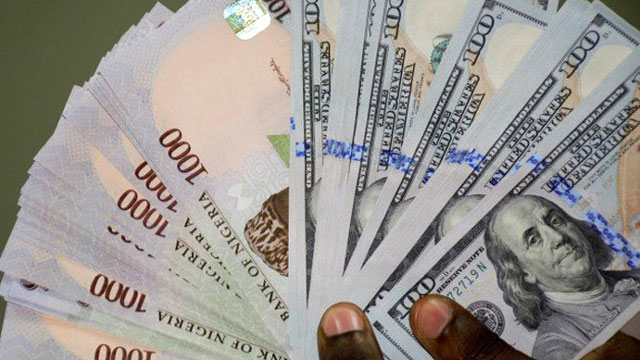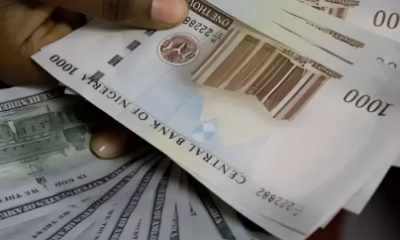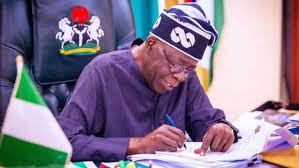The Nigerian currency, on Wednesday, January 24, remained firm against the United States of America Dollar at the parallel segment of the foreign exchange market.
The local currency closed at the rate of N364 against the greenback at the parallel market. Against the British Pound Sterling, the naira closed at the rate of N500, while the European Single Currency, Euro, closed at the rate N440.
Earlier in the week, the Central Bank of Nigeria, CBN, boosted the inter-bank foreign exchange market with $210 million to meet customers’ needs in various segments of the market.
The Bank’s acting Director, Corporate Communications, Mr. Isaac Okorafor, in a statement on Monday in Abuja said the fund would ensure that legitimate demands for foreign exchange are met.
He said that the CBN offered $100 million to authorised dealers in the wholesale segment of the market while the Small and Medium Enterprises, SMEs, segment got $55 million. Read more:
Meanwhile, the Dollar fell to a fresh three-year low against a basket of major currencies on Wednesday, January 24, after the U.S. Treasury secretary said he welcomed weakness in the currency, and as investors worried about U.S. President Donald Trump’s protectionist agenda.
ALSO SEE: Naira hits N364/$ at parallel market as Euro slump 0.2%
The dollar index .DXY, which measures the greenback against a basket of six major currencies, was down 0.93 at 89.283, slipping below 90 for the first time since December 2014. The dollar was down about 1 percent against the yen JPY=.
The dollar has pressured for months by the view that the Federal Reserve is no longer the only game in town when it comes to tighter monetary policy as growth in other regions; Europe in particular, picks up speed.
Against the yen , the dollar fell below the 110 threshold for the first time in four months. The dollar index fell to its lowest since Dec. 31, 2014, on a fresh burst of speculative selling.
A weaker dollar makes bullion more attractive for holders of other currencies.
The dollar had on Tuesday leaped as some investors judged that its recent decline to a three-year low may be coming to a close amid growing concern over the U.S. stance on global trade.

 Latest5 days ago
Latest5 days ago
 Trends6 days ago
Trends6 days ago
 Business1 week ago
Business1 week ago
 Football7 days ago
Football7 days ago
 Football1 week ago
Football1 week ago
 Health7 days ago
Health7 days ago
 Featured1 week ago
Featured1 week ago
 Business1 week ago
Business1 week ago













